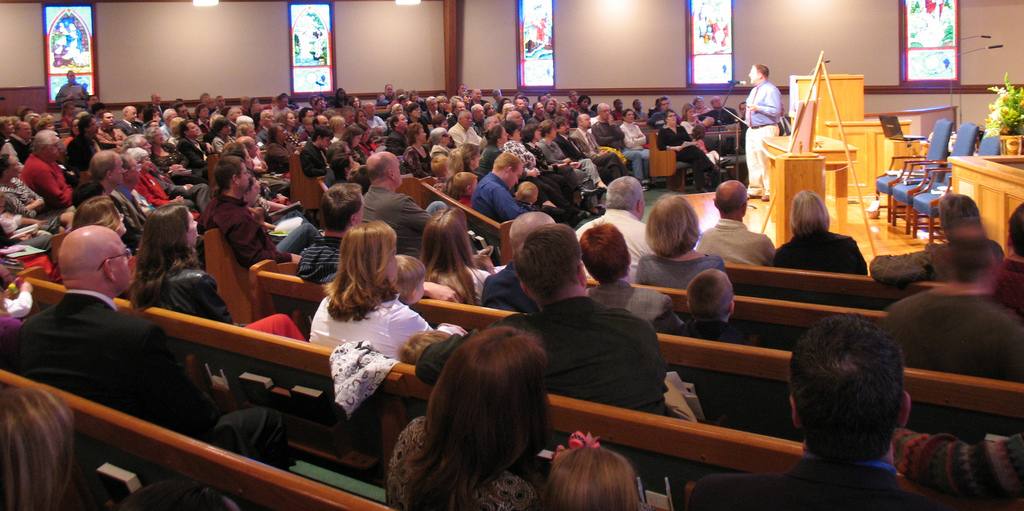By Franklin Dumond
Honest discussion of the salary and benefit needs of a pastor should not be uncomfortable. The Scripture is very direct: pastors are expected to work hard; churches are expected to offer fair compensation.
 The pastor’s salary should be reviewed on an annual basis. The finance committee should review the entire salary package as each annual budget is prepared. Years of experience, educational level, and cost of living adjustments should all be part of the discussion. Support staff such as secretaries and custodians should also have salary packages reviewed annually, but they should be evaluated and paid in comparison to their skills and positions, not in comparison to the pastor or staff ministers.
The pastor’s salary should be reviewed on an annual basis. The finance committee should review the entire salary package as each annual budget is prepared. Years of experience, educational level, and cost of living adjustments should all be part of the discussion. Support staff such as secretaries and custodians should also have salary packages reviewed annually, but they should be evaluated and paid in comparison to their skills and positions, not in comparison to the pastor or staff ministers.
Church paid salaries have historically been lower than the average salary amount in most communities. Too often the old adage “Lord you keep him humble; we’ll keep him poor!” has been an actual fact. The scandal generated by a few notorious preachers has sometimes reinforced the tendency toward lower salaries.
A few reasons for lower church salaries are:
- Unbiblical priorities. The New Testament is very clear that pastors are to be respected, treated with dignity, and paid fairly. The Apostle Paul instructs, “Let him that is taught in the Word communicate unto him that teacheth in all good things. Be not deceived; God is not mocked: for whatsoever a man soweth, that shall he also reap.” Galatians 6:6-7
- Unrealistic expectations. While all believers are expected to trust God, and not man, members may expect their pastor to live on less as an example to the flock, while the flock continues to live on more despite the noble example of the underpaid pastor.
- Untrained lay leaders. Many lay leaders who serve on finance and budget committees simply have never been trained to develop a pastoral compensation plan. For example, the specialized tax status of pastors is often a mystery to lay leaders. Even self-employed businessmen do not always understand the special dual status of the pastor, who is considered an employee for income tax purposes but self-employed for Social Security purposes.
- Unfair models. The salary model churches often use is based on the net, or take-home, pay of the average church member. While this can be a fair approach to compensation, it generally does not take into consideration that the gross salary of the average worker is substantially greater than the net pay. Most workers benefit from having an employer who provides health insurance, job training, and retirement benefits, in addition to the matching share of Social Security paid by the employer. Yet all too often the total package for a pastor is based on the take-home (net) pay of an average worker, not on the total package paid directly and indirectly to that worker by their employer.
Personnel committees, finance committees, and pastor-search committees do well to avoid two perilous pitfalls in planning for pastoral compensation. First, it is never appropriate to use an average of church member’s income to determine the pastor’s salary unless an honest study is done of the actual income of the members. Best guesses about average income will always understate the income levels. Census data on average household income in any census tract will provide surprising insights into actual household income within the congregation.
Second, it is important to consider the long term implications of a parsonage to the pastor who is more than 30 years of age. Home ownership in our society is a keystone to retirement. The general practice of a 30 year mortgage means that if a pastor does not purchase his own home by his early 30’s he will not have it paid for by the usual retirement age. While the parsonage is convenient for the church and may be necessary for the pastor due to lack of housing, it should be used sparingly in the long term pastorate. Churches sometimes rent their parsonage to provide housing allowance for the pastor. To encourage a long term pastorate some churches provide a down payment in the form of a loan or grant to the pastor which is forgiven over a period of a few years. Other churches use the parsonage for second or third staff members as the church grows and develops.
Every salary package should address three broad areas: base salary, fringe benefits, and professional expenses.
This article is the final installment of a six part series by Dr. Franklin Dumond, Director of Congregational Ministries, on understanding and planning for a pastor’s salary. To learn more about the process and intricacies of paying your pastor, catch up on part 1, part 2, part 3, part 4, and part 5.


